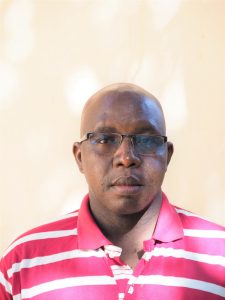 Béché, Emmanuel
Béché, Emmanuel
Emmanuel Béché, born on 24.9.1979 is an Associate Professor of Sociology of Educational Technology at the University of Maroua. He holds a Ph.D.in Psychology and Education at the University of Liege and in Sociology of Education at the University of Yaoundé 1 in 2013. In 2016-2017, he did his post-doctorate research on open and distance learning in Africa at the University of Geneva, as part of the Swiss Confederation Excellence Scholarship for foreign researchers. Prof. Béché has received several research grant sand carried out about ten research stays abroad and academic exchange programs. Besides his nomination for the Louis D’Hainaut Prize for the best dissertation in educational technology in 2014, he also has been awarded the prize of the best emerging African researcher in education in the same year. At the heart of his research lie the design, representation, use, and appropriation of ICT and instrumented training systems in Africa.
Research project
The Young and the Social Networks in Cameroon: Discourse, Usages, Sociablities and Identity Constructions
Studies on youth and social networks in Cameroon only touch on four points: digital divides, identities, representations, and uses, thus limiting themselves to engaged practices, from which they deduce identity constructions. They are silent on sociability practices and appropriation as well as on the strategies and facets of these identity constructions. They do not say how are the “youth-social networks” relationships in Cameroon regarding their socio-economic, technical, and political conditions, which are, however, particularly rich in technological constraints and opportunities. For a better understanding of these relationships in this country of contrasts and disparities, we analyze them in terms of appropriation, including discourses, uses, sociability, and identity constructions. Concerning discourses and representations, we examine their contents, variations, structures, and the positions they induce. Without forgetting the militant uses of social networks, we target those that relate to everyday life, by analyzing their factors, typologies, and meanings as well as their articulations to face-to-face practices. On the side of digital sociability, we explore how interactions unfold on social networks and catalyze socio-technical transformations. In addition to self-exposure, we study the trajectories of the contextual construction of digital identities tangled between private and public, control and decontrol, intimacy and extimacy, subjective singularities, and social recognition. To account for these social-digital facts, we rely on a triple theoretical framework: opinion, central core, and appropriation. We also adopt a qualitative methodology which uses the technique of association networks, interview, and direct digital observation as data collection tools. The analysis of these data will make it possible to read the socio-digital discourses, uses, strategies, and sociability of Cameroonian youth regarding the structural disparities of their environment, and to define what it means to be young in the age of social media in this context.
ENS de Maroua
BP 55 Maroua
Cameroun